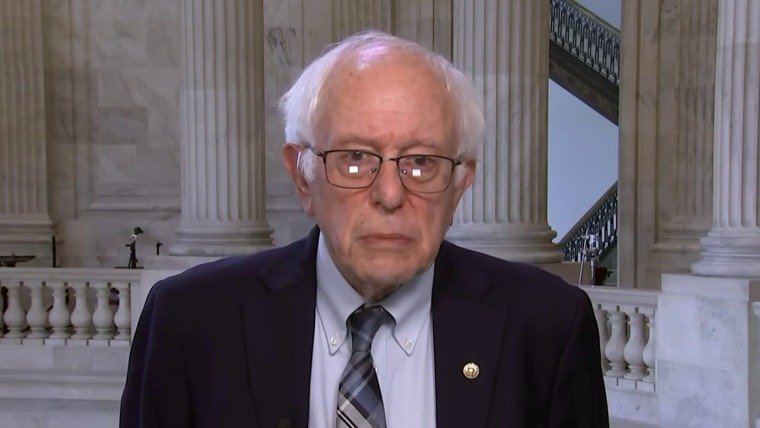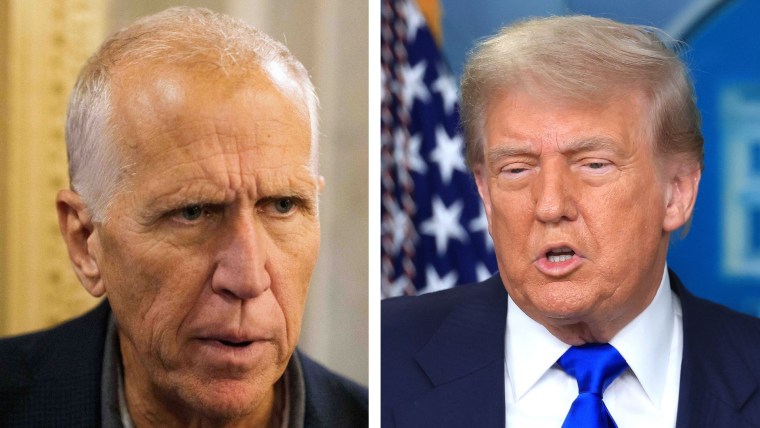UPDATE (July 1, 2025, 12:14 p.m. ET): On Tuesday afternoon, following an all-night voting session, JD Vance cast the tie-breaking vote to pass the Senate’s version of Trump’s megabill. It now heads back to the House.
The reconciliation bill making its way through Congress includes cuts to Medicaid that are so massive that even some Republicans have criticized them. In a remarkable address Sunday in the Senate, Sen. Thom Tillis asked his GOP colleagues what he should tell his fellow North Carolinians who lose health care coverage. “What do I tell 663,000 people in two years, three years,” he asked, “when President Trump breaks his promise by pushing them off of Medicaid because the funding’s not there anymore?”
But the toll is even worse than lost coverage. These cuts will cost more than 51,000 people their lives every year. That’s not hyperbole. It’s a predictable result when you cut off health insurance to people who are old, poor and sick. And it’s based on analyses and projections from researchers at the University of Pennsylvania, Harvard and Yale.
Medicaid insures 1 in 5 Americans, typically low-income and often disabled. The latest version of the bill in front of the Senate includes more than $1 trillion in proposed cuts to the Medicaid program over 10 years. If enacted, these cuts would be the largest in Medicaid’s 58-year history and would harm the health of millions.
The full effects of Medicaid cuts could be even more extensive than current forecasts suggest.
Consider one deeply vulnerable group of 13 million Americans, known as dual-eligible individuals because they rely on both Medicare and Medicaid. These people automatically get subsidies that lower the cost of their medications. When they lose Medicaid, they lose access to low-cost drugs, increasing the likelihood that chronic conditions go untreated.
Using Medicare data on dual-eligible individuals, we calculated the effects of losing drug subsidies on beneficiaries’ mortality. Based on this research, we estimated that 18,200 dual-eligible individuals would die each year from the loss of Medicaid coverage. Among the hardest hit would be those with chronic conditions like HIV, heart disease and lung disease.
The harms will not stop there. The bill proposes to add a work requirement for most nonelderly adults within Medicaid and would also end enhanced premium tax credits that lower the cost of individual plans on the Affordable Care Act (ACA) marketplace. Drawing on research about the effects of gaining Medicaid and marketplace coverage, our colleagues at Yale estimated that over 20,000 people would die annually due to projected coverage losses from these provisions of the bill.

The budget bill also will delay for a decade the new rule for minimum staffing at nursing homes that would improve quality of care. Based on studies of the relationship between nurse staffing hours and resident mortality, our colleagues at Penn project another 13,000 deaths per year among residents.
Medicaid funding cuts will force governors and state legislators to make politically unpalatable decisions, because states, unlike the federal government, must balance their budgets every year. States will likely be forced to curtail benefits or install policies that limit the amount of time individuals can receive Medicaid. Hospitals, clinics and other caregivers will suffer as well with rural and urban facilities bearing the brunt, forcing them to trim operations or close altogether.
There is evidence that Medicaid expansions are cost-effective by improving the long-term health of many people.
A full accounting of these impacts won’t be known for several years as they depend on how states adjust over time to funding cuts. Therefore, the full effects of Medicaid cuts could be even more extensive than current forecasts of coverage loss and mortality suggest.
What can be done to reduce unnecessary Medicaid loss? Halting the proposed cuts would be a start. There is evidence that Medicaid expansions are cost-effective by improving the long-term health of many people. While several Republican lawmakers who have criticized the Medicaid cuts still plan to vote for the legislation, there is still time for them to use their leverage to amend the bill.
Another place to look is Medicaid’s onerous application process. Many people cycle on and off Medicaid for bureaucratic reasons like lost or incorrect paperwork rather than improving finances. Analysts have identified ways states can reduce these burdens, including streamlining asset tests and making Medicaid enrollment automatic for individuals receiving income-based programs.
Unfortunately, the tax bill will move policy in the opposite direction — adding or preserving administrative hurdles that prevent individuals who need Medicaid from getting coverage.
For example, the proposal to introduce a Medicaid work requirement would add bureaucratic red tape and make it harder for people to remain on Medicaid — even for those who are working and meet eligibility criteria. In 2018, for instance, Arkansas instituted work requirements for its Medicaid program until a federal judge’s ruling the following year put them on hold. Research found that the requirements did not increase employment but instead led to coverage losses because of difficulty reporting their employment status to the state.

The tax bill also proposes to delay until at least 2035 a Biden-era Medicaid rule to streamline Medicaid eligibility and renewals for dual-eligible individuals. Currently, most dual-eligible individuals must fill out more than 15 pages of forms to document their income and assets. This complexity can make it especially hard to keep Medicaid for people with cognitive impairment. Delaying this rule would result in 1.3 million fewer low-income Medicare beneficiaries enrolled in Medicaid by 2034, the Congressional Budget Office estimated.
Although policymakers say they don’t intend to cut coverage for older adults and people with disabilities, what is clear is that the bill’s funding reductions and its changes to Medicaid enrollment policies are unlikely to spare this vulnerable population.
As the budget bill moves through Congress, policymakers must consider the repercussions that steep Medicaid cuts will have and whether Medicaid-eligible individuals keep the coverage they need. If they do not, the consequences won’t just be financial; they’ll be deadly.
